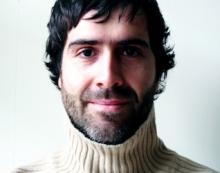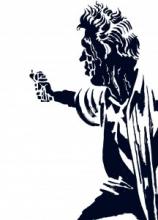Politics in Early Eighteenth-Century Britain: Why Handel was Fired and Other Stories
Mon, Nov 18 2013, 7:30 PM
A Baker-Nord Cosponsored Event
When Handel arrived in London, he was in the employ of the Elector of Hanover, Georg Ludwig, who was heir to the throne of Great Britain. The current monarch Queen Anne welcomed Handel at court, and the composer quickly began composing works for ceremonial court occasions. In the meantime, Lord Burlington (who is thought to have supported the claims to the throne of “James III”, the nephew of Queen Anne who was living in exile in France) welcomed Handel into his artistic circle.
Hired Education: Capitalism and the Academic Community
Wed, Nov 20 2013, 4:30 PM
Historian Ellen Schrecker presents a perspective on how and why the leaders of American universities embraced the corporate mindset that had come to dominate the neoliberal political climate of the late 20th century. She examines the current state of the academy in which universities have become engines of economic growth, along with students viewed as customers, faculties engaged as capsulized employees, and successful researchers considered entrepreneurs. The lecture will discuss implications of this profound shift in the institutional missions of American colleges and universities.
Pearl Harbor: Sneak Attack or Provocation?
Thu, Dec 5 2013, 4:15 PM
A Humanities-Related Event
In America the Japanese attack on Pearl Harbor has been interpreted as a cowardly sneak attack by an evil enemy on an innocent America. But what if FDR provoked, even unnecessarily, Japan’s attack on Pearl Harbor? If this were so, our understanding of the history of World War II and its consequences up until September 11, 2001 and beyond would have to change. Dr.
Euripides’s Hecuba: A Political Interpretation
Fri, Jan 17 2014, 1:00 PM
A Baker-Nord Cosponsored Event
Much of the criticism on Euripides’s Hecuba is focused on the character of Hecuba as victimized mother who rightfully avenges her son’s death and those who argue for Hecuba’s moral deterioration over the course of the plays’ two main movements, sacrifice and revenge. This talk departs in a new direction by analyzing how the historical and political background informs the key themes of the protection due prisoners of war and the treatment of the vanquished.
Lee Daniels’ The Butler: Film Screening and Discussion
Tue, Jan 21 2014, 1:00 PM
A Baker-Nord Cosponsored Event
A 2013 American historical fiction drama film directed by Lee Daniels is loosely inspired by the real-life of Eugene Allen, an African-American who eyewitnesses notable events of the 20th century during his 34-year tenure serving as a White House butler to eight presidents over three decades. The film traces the dramatic changes that swept American society during this time, from the civil rights movement to Vietnam and beyond, and how those changes affected this man’s life and family. A discussion will follow the screening.
Issues in 20th and 21st Century Art: Lize Mogel
Wed, Jan 22 2014, 5:00 PM
A Humanities Related Event
Lize Mogel is an interdisciplinary artist who works with the interstices between art and cultural geography. She has created and disseminated counter-cartography maps and mapping that produce new understandings of social and political issues. Her work connects the real history and collective imaginary about specific places to larger narratives of global economies. She has mapped public parks in Los Angeles; future territorial disputes in the Arctic; and wastewater economies in New York City.
The Speaking River: Voices In and From the Urban Landscape
Thu, Jan 23 2014, 4:30 PM
A Baker-Nord Cosponsor Event
Rivers are often background, especially within city limits. In modern cities, formerly obstreperous rivers have been channeled and generally domesticated by embankments and weirs, and condemned to carry tourist craft and little else. However, in many cities, the river is the most ancient and persistent “natural” element, qualifying often as a symbol — not least in art and poetry — of a city that it preceded and will probably outlive. It may even receive a voice, and become a kind of character in the drama of that unfolds around it.
Alterity Revisited: Recent Projects
Thu, Feb 6 2014, 4:30 PM

A Baker-Nord Digital Humanities Event
Jose Carlos Teixeira — the Champney Family Professor of Art, CWRU & Cleveland Institute of Art — will present his recent interdisciplinary and multi-media-based research explorations. His work investigates and expands on notions of identity, otherness, language, boundary, exile and displacement. Through strategies of participation, his pieces address specific issues related to locational identity, global diaspora, and the limits (or overlapping) of personal/social, physical/mental, and political territories.
The Making of Albert Camus’ “The Stranger”
Mon, Feb 10 2014, 4:30 PM

The Stranger was published in 1942, in the depths of the Nazi Occupation, by a young unemployed journalist from Algeria who would normally never have had a hearing in Paris. In her lecture, Alice Kaplan, John M. Musser Professor of French at Yale University, will explore the making of this phenomenal literary success. That this strange book should become the best known French novel in the United States and still the most widely taught, that it changed the whole direction of the novel, here and in France… is, in literary terms, a miracle. This lecture, in memory of Walter A.
“Interpreting Capitalism” Film Series: THE LAST TRAIN HOME
Thu, Feb 13 2014, 1:00 PM
Every spring, China’s cities are plunged into chaos as 130 million migrant workers journey to their home villages for the New Year’s holiday: an epic spectacle that reveals a country tragically caught between its rural past and industrial future. In this award-winning film, Chinese-Canadian filmmaker Lixin Fan travels with one couple who have embarked on this annual trek for almost two decades. Emotionally engaging and starkly beautiful, Last Train Home sheds light on the human cost of China’s ascendance as an economic superpower.
- Home
- Events
- Past Events
- 2013-2014

